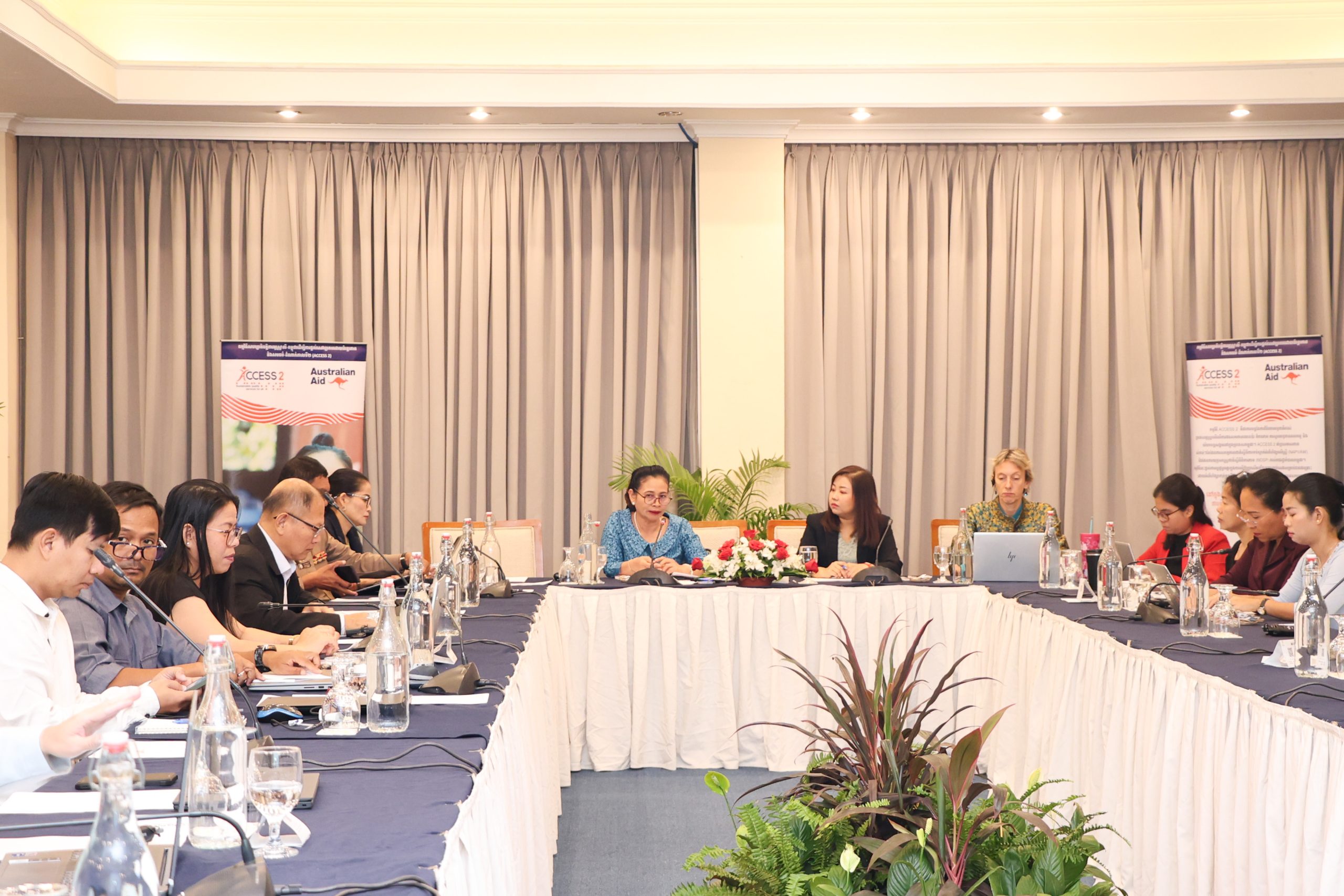Phase 2 of the Australia-Cambodia Cooperation for Equitable Sustainable Services (ACCESS) program continues Australia’s flagship investment in promoting gender equality, disability inclusion, and rehabilitation in Cambodia. This ongoing partnership is driving significant progress toward the End of Investment Outcomes (EOIOs):
- EOIO 1: By 2028, selected service providers will deliver higher-quality gender-based violence (GBV) and disability services to an increasing number of people in target provinces.
- EOIO 2: By 2028, national and subnational policy and planning processes will better respond to the priorities of GBV survivors and persons with disabilities.
The GBV Workstream, one of three workstreams under ACCESS 2 (alongside Disability Inclusion and Rehabilitation Workstreams), plays a critical role in achieving these outcomes. The second GBV Workstream meeting, held on 10 January 2025 in Phnom Penh, both in person and virtually, showcased remarkable achievements and strengthened collaborative efforts across sectors.
 Bringing Stakeholders Together
Bringing Stakeholders Together
The meeting brought together diverse stakeholders, including representatives from:
- The Ministry of Women’s Affairs (MoWA) and Provincial Departments of Women’s Affairs (PDoWAs) in Siem Reap, Ratanakiri, Kampong Cham, and Kampong Speu.
- The Ministry of Health (MoH), the Ministry of Social Affairs, Veterans and Youth Rehabilitation (MoSVY), and the Disability Action Council (DAC).
- The Ministry of Interior/National Committee for Sub-National Democratic Development Secretariat (NCDDS).
- ACCESS 2 GBV Strategic Implementing Partners (SIPs).
- The Australian Embassy and the ACCESS 2 team.
The agenda focused on four key objectives:
- Strategic review of program progress, risks, and alignment with sectoral priorities.
- Sharing implementation progress, challenges, lessons learned, and best practices, while identifying collaborative solutions.
- Disseminating new policies and procedures to strengthen service quality.
- Escalating key issues—social, economic, and political—to relevant stakeholders, including DFAT and government bodies.
Key Achievements and Learnings
Progress and Challenges
Representatives from PDoWAs in target provinces presented updates on achievements and challenges in delivering services to GBV survivors. Highlights included improvements in the implementation of GBV quality checklists and the establishment of counseling rooms, as well as the refinement of response working group guidelines. Strategic Implementing Partners (SIPs) shared insights on addressing gaps and refining best practices to enhance service delivery.
Empowering Inclusion
ACCESS 2 Team Leader Ms Sophia Cason provided updates on the program’s organisational structure, highlighted recent successes, and announced upcoming initiatives. A key highlight was the planned GBV training for sign language interpreters, aimed at improving service accessibility for survivors with hearing impairments and intellectual disabilities.
Recognition and Commitment
Ms Sothearoth Hel, Portfolio Manager for Development Cooperation at the Australian Embassy, commended MoWA and the PDoWAs for their leadership and commitment to driving change at the provincial level. She also expressed gratitude to the SIPs and other stakeholders for their dedication and partnership in achieving ACCESS 2’s goals.
The meeting concluded with positive reflections from H.E. Nhean Sochetra, General Director of the Social Development Department of MoWA. She emphasised the importance of collaborative efforts in improving GBV services, enhancing cooperation, and commemorating the 16 Days of Activism Against GBV.
Looking Ahead
As ACCESS 2 progresses, these quarterly GBV Workstream meetings continue to play a vital role in driving measurable improvements. They ensure that the voices of GBV survivors and people with disabilities are prioritised in national and subnational policy and service delivery. The next GBV Workstream meeting is scheduled for July 2025, marking another step forward in achieving the shared vision of equitable, high-quality support for vulnerable communities.








